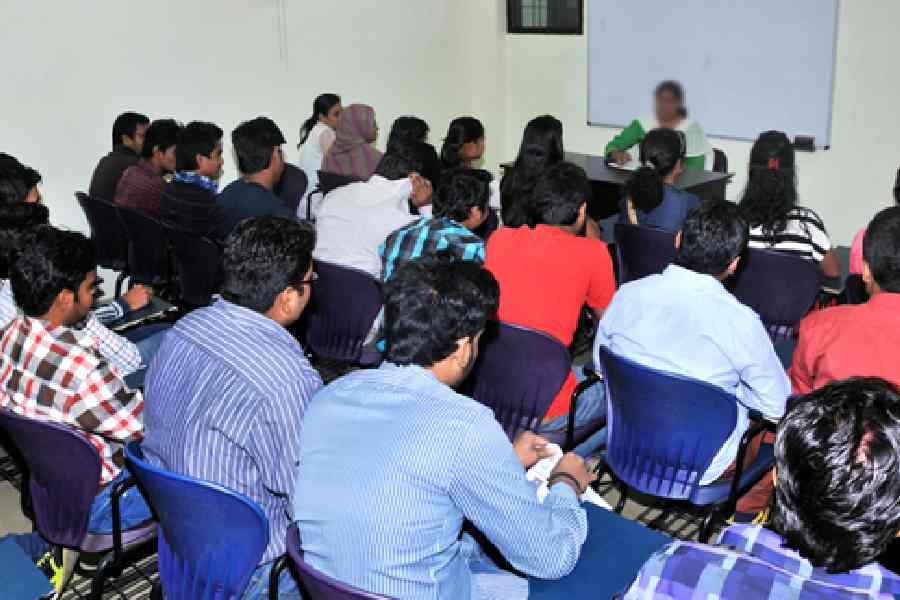The minister of state for education said that the states and Union Territories should be responsible for regulating coaching centres according to the rules that the Union education ministry provided last January. This might address some serious problems in these institutes, maintenance for one. Three young people died when a basement library was flooded in one of them. But this evades the root of these problems while passing the buck to the states. The information provided by the minister in Parliament revealed the massive growth in business of coaching centres — in 2023-24 it had increased 149 times over the previous year. Such success would breed sufficient confidence for its owners to ignore the small stuff, like maintenance, which ended in tragedy. The increase was already obvious in 2020-21, which coincided with the year the National Education Policy was implemented. But a coincidence is unlikely. The reasons behind the rapid burgeoning of the business would provide the link.
The NEP professed to introduce systems that shall reduce dependence on coaching centres. Yet the opposite happened. The gradual centralisation of all entrance tests promoted by the NEP in search of a single standard for all has led to numerous problems. A common entrance examination for college or university tends to incline towards the method and curriculum of the central board of school-leaving examinations, leaving all others, especially state boards, at an obvious disadvantage. Additionally, questions are increasingly in the multiple-choice format in spite of protests from academics. Both these reasons drive students towards coaching, on which guardians are spending at least two-thirds of the total budgetary allocation for higher education for 2024-25. The result is a predominance of rote learning and superficial knowledge; depth of understanding is not tested. But, ultimately, it is the decline in the quality of school education that must be blamed. Without a thorough understanding of lessons and intensive assignments that are regularly assessed, students feel the need for supportive training; otherwise they will not succeed in the entrance tests of the best institutions. What needs to be ensured are conditions that will stop the proliferation of coaching institutes which would include improving the situation in all schools and de-centralising entrance examinations. These are the issues the education minister might discuss with the states. Perhaps he might collaborate with them in addressing the problem.

